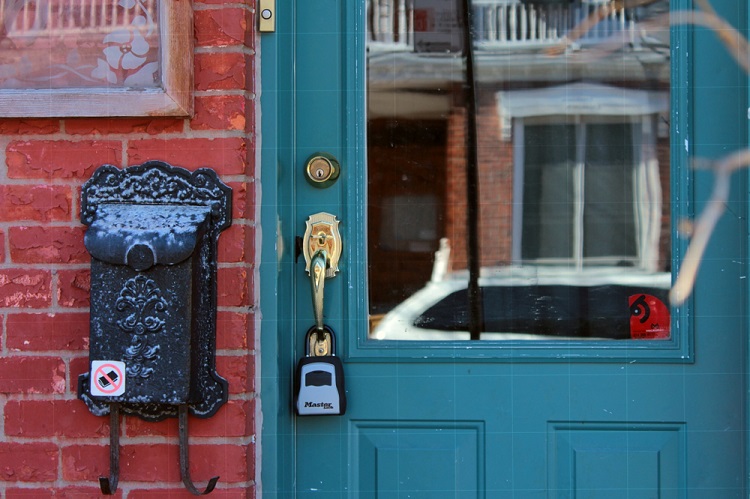The real estate risk no one is talking about
Will short-term rentals be affected in the long-term?
Glen Weinberg //March 27, 2020//


The real estate risk no one is talking about
Will short-term rentals be affected in the long-term?
Glen Weinberg //March 27, 2020//

Like many of you, I had a rocky ride in the last real estate recession and successfully learned many million-dollar lessons that were very painful. One of the key takeaways from the last recession is that risks lurk in plain sight. Looking back, it was easy to see the mortgage meltdown approaching. What is the risk today that is right under your nose?
What is the risk that is hiding in plain sight?
Short-term vacation rentals like Vrbo, Airbnb and more are growing rapidly. Here are a few statistics from Colorado that shows the huge growth between 2009 and 2014:
- Vail: 144% increase
- Steamboat Springs: 175% increase
- Breckenridge: 114% increase

Why rent short term versus long term?
It’s basic economics; a short-term rental can gross three to four times the amount of a long-term rental property. Many property owners in resort communities have discovered the new economics of short term rentals and have jumped on the bandwagon as you can see above.
Why short-term rentals are riskier?
Short-term rentals are much more prone to economic shock than longer term rentals. If we look at the last recession (and prior recessions) the first thing cut back by consumers is vacations. We see that people will vacation locally as opposed to venturing to faraway places. And local visitors spend substantially less than destination spenders.
The virus and short-term rentals
The economic shock to short term rentals became apparent last week when many cities literally “turned off the lights,” banning all short-term rentals instantly at the peak of the spring break rush in Colorado.The owners of these properties have gone to zero income (actually negative as they had to refund their bookings) overnight.This trend will likely continue for the next four months in many areas depending on how quickly the virus gets under control.
Short term rentals more prone to shock
Short-term vacation and nightly rentals are much more exposed to changes in consumer spending.For example, if you have a long-term tenant, it is unlikely they will move out immediately due to a recession because they still need a place to live.However, vacation rentals are a different animal.As soon as there is a substantial recession, people will not book that vacation (or they will cancel their existing vacation).It is an easy and quick decision to save disposable income.Occupancy rates will fall in destination markets and this will quickly translate into loss of revenue to short term rentals.
Most rentals bought with leverage
Here is an interesting statistic from Homeaway: “Fifty-nine percent of subscribers get at least 75 percent of their mortgage covered by the rental stream.” For almost 60% of people that utilize short-term rentals, 75% of their mortgage is paid for by the rental income.
So, what happens when the party stops? The last recession can give us some clues.
One of the largest sectors of nightly rentals are condos
 While condos are both easy to rent and easy to maintain, there is a downside. After the last housing market crash, condominiums got a bad rap for having higher mortgage default rates, foreclosure rates and total losses. This is an interesting chart by Corelogic (shown below), which shows substantially higher default rates on investment versus owner-occupied properties. (In the chart, blue designates investment properties.) This same correlation is likely true for any investment property versus any owner-occupied property. At the peak, over 15% of all investment condos defaulted. Will the same happen in the current crisis?
While condos are both easy to rent and easy to maintain, there is a downside. After the last housing market crash, condominiums got a bad rap for having higher mortgage default rates, foreclosure rates and total losses. This is an interesting chart by Corelogic (shown below), which shows substantially higher default rates on investment versus owner-occupied properties. (In the chart, blue designates investment properties.) This same correlation is likely true for any investment property versus any owner-occupied property. At the peak, over 15% of all investment condos defaulted. Will the same happen in the current crisis?
Not only are people renting condos, but they’re renting primary residences.
The Wall Street Journal recently wrote an article about how people can buy bigger houses as a result of the additional income from renting rooms in/on their property. For example, someone could have bought a $250,000 house, but instead paid $50,0000 more so that they could rent out the additional space for a profit. This seems like a logical assessment from a homebuyer, why wouldn’t a homeowner do this? It is human nature to focus on the positives, as opposed to the negatives. But what happens as the market changes and that room is no longer being rented out?
Do you really think that property owners saved their earnings?
This is highly unlikely. Look at this graph from the Federal Reserve. The average American saves less than 2.5% of their income annually; this includes income from short term rentals. How will the mortgage get paid?
Two items could derail the short-term rental market
First, a recession is the obvious risk. As disposable income decreases due to a recession, people will spend less on vacations including lodging. The second risk is regulation. Many cities are banning nightly rentals, substantially restricting them and/or increasing the taxes. For example, in Salida, they have changed the tax classification to commercial from residential for short term rentals. This increases the taxes by around 40% and changes the economics of renting. The two risks above could be catastrophic for many short-term rental owners right now.
The extent of the impending problem is deeper than we think
The explosive growth in nightly rentals has exposed (no pun intended) millions of property owners to a new risk due to the virus fallout. Let’s say that nightly rentals followed the trend of condos in the last recession. This means that 14% of all nightly rentals could default in the next economic downturn. Although nobody knows exactly how many nightly rentals are out there nationwide, we do know that nightly rentals are pervasive in many communities. What happens when 14% of these enter foreclosure at or around the same time? How will the real estate market and general economy react? Are nightly rentals like the subprime crisis that was lurking right under our nose? We’ll just have to wait and see.























